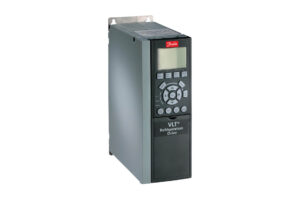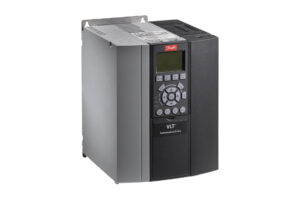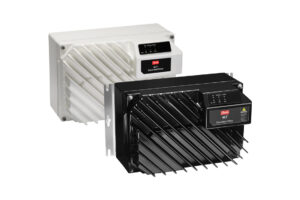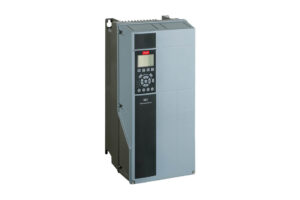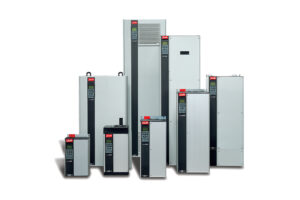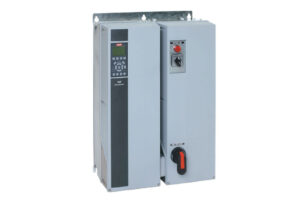
Danfoss Manufacturer
Danfoss controls are integrated into many buildings and machines you won’t see but enjoy using. They represent a sophisticated system for enhanced management and improved performance of various industrial and commercial applications. The Danfoss controls include the following types: frequency drives, pressure and temperature sensors, and electronic controllers.
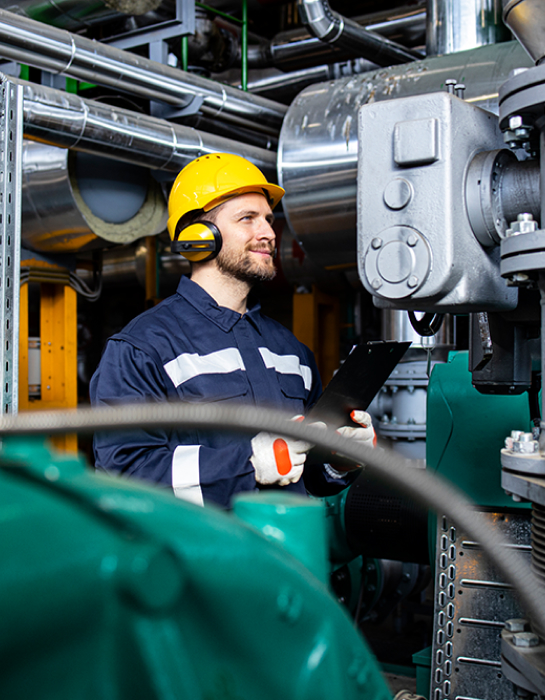
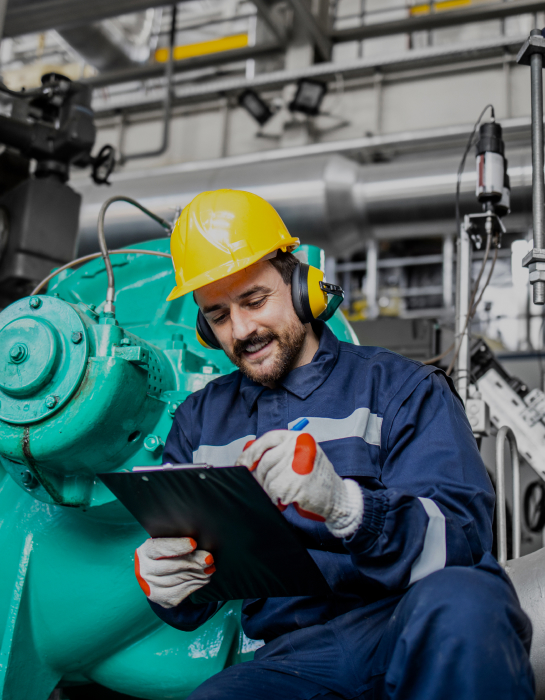
High-Quality Controls: Reliable & Efficient Solutions for Industrial Systems
Motor controls therefore play an important role in industrial automation in that these allow better efficiency, safety, and reliability in machinery operation. Hence, the electrical motor controls ensure a continuance of steady, high-performance operations in industries by precisely controlling the functions of motors such as speed and torque.
AMED-US provides the highest level of industrial motor control services for better productivity and safety with reduced energy consumption and less downtime. For various industries, including manufacturing, energy, and automotive, AMED-US offers reliable control systems that are specifically designed to meet the unique needs of each sector.
Types of Controls
With Amed-US, one can tap into a broad portfolio of motor control solutions that help attain high performance and reliability across diverse industrial applications. An overview of some of the key controls they offer is presented below.
Servo Motor Drives
Servo motor drives are applied in applications that require very precise regulation of the speed of the motor, torque, and position. These drives find major applications in environments where accuracy is required at a very high degree of level; hence, these are being largely applied in manufacturing, robotics, and automation in which the areas of precision and responsiveness form an indispensable part of these processes. Servo drives have specific applications in tasks involving CNC machining, robotic arms, and automated assembly lines, where even minor deviations result in errors.
Machinery Drives
Machinery Drives are designed to meet the most challenging industrial applications. For heavy machinery, these drives offer solid, dependable control over complex industrial processes. They are designed to withstand very unfavorable conditions of temperature, dust, and vibration; as such, they ensure smoothening and safety of machinery operation. Machinery drives optimize energy consumption and process efficiency while finding wide applications in mining and steel production, along with large-scale manufacturing.
HVAC Drives
HVAC drives represent a specific class of motor drives dedicated to serving heating, ventilation, and air conditioning systems in commercial and industrial buildings. By regulating the speed of HVAC motors according to runtime demand, these drives improve energy consumption and ensure better temperature control for buildings. Capable of saving as much as 50% of consumed energy, HVAC drives are crucial to attaining cost efficiency and environmental sustainability.
General Purpose Drives
General Purpose Drives are very versatile motor control products applied in a wide variety of applications. They provide general-purpose drive applications with versatile motor control for standard tasks that provide consistent performance for conveyor, pump, fan, and mixer applications. They are designed for everyday use in industry to make motors run both efficiently and reliably. General-purpose drives are cost-effective and easily integrated into business applications where one wants a general solution for standard motor control needs without complication required in specialized applications.
Refrigeration Drive
It integrates an optimized design for applications in the refrigeration and cooling system for maximum efficiency and energy savings. These drives regulate the compressor speed and, therefore, are critical in maintaining desired levels of cooling in refrigeration systems used in food processes, pharmaceuticals, and cold storage. By optimizing the function of the compressor, refrigeration drives minimize energy consumption, reduce operating costs, and maximize the life of refrigeration machinery.
Lift Drive
Lift drives are designed to provide smooth, efficient, and safe operation for elevators and lifts. The motor drive will provide precise speed control to softly accelerate or decelerate the lift for reduced mechanical stress and increased passenger comfort. In addition to the dependable control provided, safety features will be addressed in the design of the lift drives to prevent any sudden drops or stops of the elevator, hence warranting the safety of the ride.
Decentral Drive
Decentral Drive offers a flexible motor control solution by having the drive located directly near the motor, limiting extensive wiring and thus simplifying installation. This decentralized concept guarantees higher efficiency in distributed systems where many motors operate together. Decentral drives offer ideal solutions to many industries with localized control needs, including material handling, packaging, and automotive assembly that enhance the responsiveness of systems while reducing the complexity and cost of traditional centralized control systems.
Aqua Drive
Aqua Drives find their main applications in water treatment and pump systems, making an important impact on flow and pressure control in water applications. These drives help regulate pumps in irrigation, water distribution, wastewater treatment, and desalination plants. Aqua drives reduce energy consumption and operation costs considerably by adjusting pump speed to meet demand levels while sustaining the pumps through reduced wear from excessive pressure and flow fluctuations.
WSES Soft Starters
WSES soft starters are designed to ramp the motor speed up and down during start-up and shutdown. This decreases the inrush current which often causes mechanical stress and damage to motors. This creates a controlled acceleration, which is very important in applications containing heavy starts and stops, such as conveyors, pumps, and compressors. WSES soft starters have perfect applications in industries that require smooth, reliable motor operation without mechanical shock from an electric start.
AMED-US ensures that each one of these motor control solutions is designed to effectively meet specific industrial demands, enhancing overall system performance and reliability.
Why Choose Controls of AMED-US?
With years of experience in the industrial automation sector, AMED-US has gained a good name in this field with its reliable and advanced solutions for motor starter controls. Great experience in product development guarantees that every product will reach the highest possible level of performance and durability, backed by rigorous quality control during manufacturing. This commitment to excellence ensures that the products from AMED-US will be long-lasting and their performance will always remain high, even under extreme conditions within an industrial setting.
Along with the top-level products, AMED-US as a distributor of motor controls is also providing its customers with aftersales technical support and maintenance at a level that is not seen anywhere. The professional crew makes sure to continuously assist the customer in every respect, right from the installation to problem-solving, which very effectively brings up the time and effectiveness of system use.
AMED-US also realizes that no business is like any other. They custom-fit solutions to the needs required in an industry and operation. From manufacturing to HVAC, even water treatments, AMED-US works directly with their clients to design advanced electrical & motor controls systems to perfectly match their requirements for optimal performance and ultimate long-term success.
OUR SERVICESFrequently Asked Questions
Control panel safety and compliance is managed at both the federal and local levels. Nearly all municipalities have codes or regulations that require electrical control panels to meet certain safety standards and/or be certified for specific applications by a Nationally Recognized Testing Laboratory (NRTL) such as UL Solutions.
By virtue of being the oldest and largest NRTL, certifications from UL are widely recognized and accepted by municipal inspectors in the United States and Canada. In most jurisdictions, a UL certification is the best way to facilitate and expedite the approval and installation of electrical control panels and related equipment.
A UL certified control panel has quality assurance to meet federal and local regulations and standards and can also satisfy AHJ requirements (Authority Jurisdiction Requirements). In the United States and Canada, the UL is accepted by many municipal inspection authorities and it is the largest and longest standing Nationally Recognized Testing Laboratory (NRTL) in the US. NRTL’s are identified by OSHA, (the Occupational Safety and Health Administration). These organizations work hand and hand with the National Electric Code (NEC) as well. The robust standards and requirements of these organizations together provide solid results for those who utilize the UL certified control panels.
A UL certification demonstrates that UL Solutions (or a designated partner) has tested representative products manufactured by a supplier and determined that they meet specific safety standards. These standards are published in UL’s nationally recognized Standards for Safety.
There are actually three levels of UL certification – UL Listed, UL Recognized, and UL Classified. UL Certified is a broad term that includes all three levels.
Electrical control panels designed for specific applications or locations may need to meet additional UL standards. These can include 1203 (explosion-proof and dust-ignition-proof electrical equipment) and 698a (relating to hazardous locations).
UL 698A (Standard for Industrial Control Panels Relating to Hazardous (Classified) Locations) applies to panels intended for installation and use in ordinary locations with intrinsically safe circuit extensions into Class I, II, and III, Division 1 and 2 hazardous (classified) locations.
The Standard for Explosion-Proof and Dust-Ignition-Proof Electrical Equipment for Use in Hazardous (Classified) Locations (UL 1203) applies to panels designed to be explosion proof/dust-ignition proof for installation and use in hazardous (classified) locations.
Power supply problems
One of the most frequent issues faced by electrical control panels is power supply problems. These can manifest in various ways, such as voltage fluctuations, tripped circuit breakers, or blown fuses. These issues can be caused by external factors like power surges or internal faults within the control panel itself. When troubleshooting power supplies in control panels, it is essential to check the incoming power source, inspect the circuit breakers and fuses, and ensure proper grounding.
Wiring faults
Faulty wiring is another common culprit behind electrical control panel issues. Loose connections, damaged cables, or incorrect wiring can lead to a host of problems, including intermittent faults, short circuits, or even electrical fires. To troubleshoot wiring faults, a thorough inspection of all connections should be carried out, focusing on terminal blocks, cable insulation, and the integrity of the wiring harness. Using a multimeter or continuity tester can help identify faulty connections and ensure electrical safety.
Component failures
Control panels are composed of various components, such as relays, contactors, switches, and PLCs (programmable logic controllers). Over time, these control panel components can wear out or fail, leading to control panel malfunctions. Troubleshooting component failures in an electrical control panel requires a systematic approach, starting with identifying the faulty component through visual inspection, testing, or fault codes. Once identified, the faulty component should be replaced with a suitable replacement, following the manufacturer’s guidelines.


